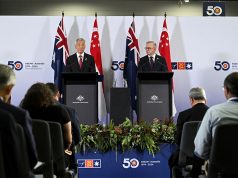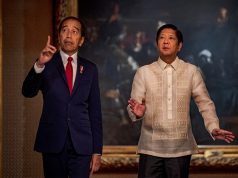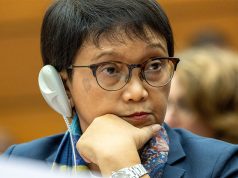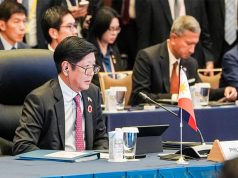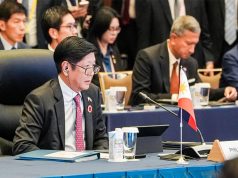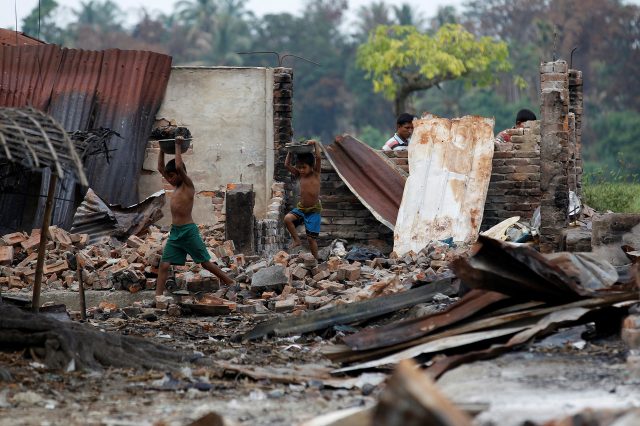
MANILA – The plight of the Rohingyas, the Muslim minority fleeing persecution in Myanmar, has caused a rare split within the Association of Southeast Asian Nations, with member state Malaysia issuing a position contradicting the statement issued by this year’s chair of the regional bloc, the Philippines.
Foreign Affairs Secretary Alan Peter Cayetano said, however, that he respects Malaysia’s rejection of the chair’s statement on the Rohingya crisis in Myanmar, which is accused by critics of not doing enough to stop what has been described as “ethnic cleansing.”
ASEAN is known for its obsession with forging a consensus among the 10 members, and such a pointed departure by one member is deemed rare.
According to remarks by Malaysian Foreign Minister Anifah Aman, Kuala Lumpur is distancing itself from the chairman’s statement issued in ASEAN’s name by Cayetano.
Malaysia said the chair’s statement included a misrepresentation of the reality on the ground and not the true state of the Rohingya, over 400,000 of whom have fled Myanmar since August 25, when the Myanmar military, attacked by insurgents, vented its ire on Rohingya civilian communities.
“Malaysia would like to dissociate itself with the Chairman’s Statement as we are of the view that it is a misrepresentation of the reality of the situation. In this regard, Malaysia has made known its concerns but they were not reflected in the Chairman’s Statement. Hence, the Chairman’s Statement was not based on consensus. The statement also omits the Rohingyas as one of the affected communities.”
The chair’s statement did not state that the Rohingya are a Muslim minority in the predominantly Buddhist population of Myanmar, Malaysia pointed out.
Aman added that the chair’s statement was not based consensus among members, because it simply deleted the line explicitly saying the Rohingyas are among the communities affected by the continuing violence in Myanmar.
Cayetano’s statement condemned the attack on Myanmar security forces and all acts of violence that have resulted in a massive loss of properties and lives.
DFA explained that a chairman’s statement was issued precisely because Malaysia had a different view; and, being ASEAN chairman for 2017, the Philippines had a “certain level of flexibility” to formulate a chairman’s statement on various key issues.
Cayetano said: “ASEAN is deeply concerned about the humanitarian situation in the northern Rakhine State and since Malaysia has different views on some issues, out of respect for its position, we decided that instead of a Foreign Ministers Statement, we would issue a Chairman’s Statement that would reflect the general sentiments of the other foreign ministers.”
While expressing concern over the spiraling violence in Myanmar, Cayetano’s statement – unlike the predominant thread of reports out of Rakhine showing systematic arson, and even alleged rape of the Rohingya – simply categorized the crisis as a “complex inter-communal issue” with deep historical roots.
The chair’s statement said there was need to look for long-term solutions to the problem, including dialogues between Myanmar and Bangladesh, where over 400,000 Rohingya refugees have fled in the short period since August 25. In all, according to UN data, over 700,000 Rohingyas have fled to Bangladesh.
As chair, the Philippines said it will allow member states to air different positions because it indicates a higher level of maturity in advancing the consensus principle whenever the bloc is faced with serious issues that impact the national interest of certain members.




